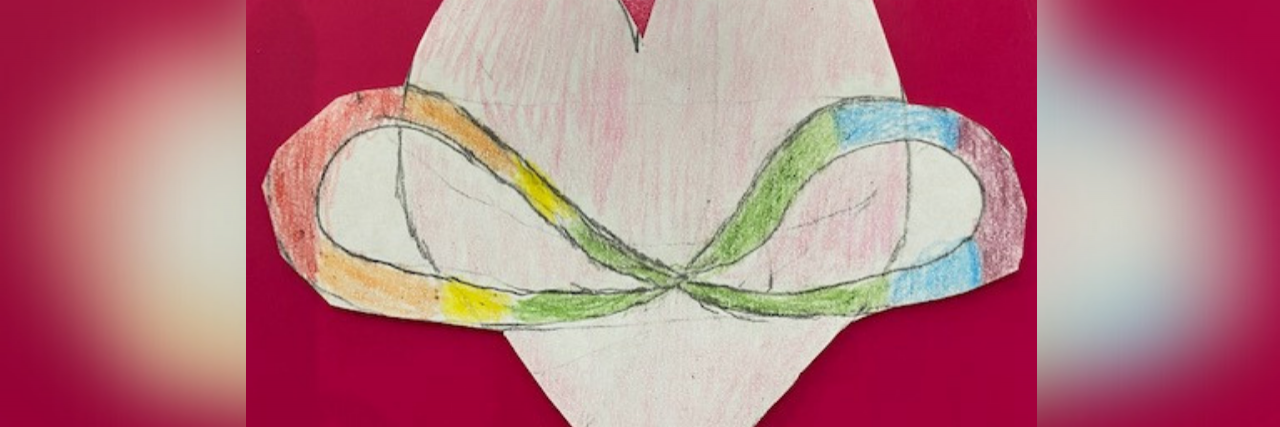Finding Confidence as a Queer, Neurodivergent Woman
There are many meaningful lessons I have taken away from my experiences with dating and relationships as a queer, neurodivergent woman. As someone who learns and grows through conversation, I would like to impart one of those lessons here so that you may learn and grow alongside me.
When I discovered I was queer in high school, I was obsessed with wanting to date another woman or non-binary person. Yet I was too scared to ask for kisses or dates. From high school to college, I longed, fantasized, yearned. I even performed an original song for a cabaret about how I would like “One Little Kiss.” But no matter what, it seemed I couldn’t find success.
Some obstacles I faced are ones any queer person, neurodivergent or not, can relate to. I had many crushes who turned out to be straight or aromantic or not looking for relationships. I was also simply too nervous, backing away from confessions, deleting texts, at one point throwing a cute card I poured my heart into in the garbage.
Then there were some obstacles I faced because of my neurodivergency. I didn’t attend gay bars since I worried about experiencing sensory overload in an unfamiliar environment with drinking and loud noise. I also worried that being autistic with an anxiety disorder, I would come across as childish to anyone I wanted to date or that my struggles with my emotions would drive people away.
I did feel attraction to another neurodivergent person on my college campus — let’s call them Millie. Millie was a year younger than me, a sophomore when I was a junior. I grew attached to Millie as I watched them blossom from a nervous and reserved person to a proud awkward dork. You would think both of us being neurodivergent people learning to embrace ourselves would make asking them out easier — but my overactive imagination, which my neurodivergency contributes to, went to work. I thought because we had a one-year difference, if I asked Millie out, I would be taking advantage of them. I also began thinking that me asking someone out, in general, made me a creep, a fear I later discovered some queer people face because of internalized queerphobia.
One night, Millie and I sat outside their dorm building, resting on rocks underneath the clear dark sky. As we spoke, they shared a similar fear I held. They wanted to know what it was like to date a girl but wondered if anyone would be able to handle their meltdowns and emotional shutdowns. I would date you, I wanted to say. My nervousness and internalized ableism and internalized queerphobia led me to say nothing.
With me holding back so much, was I ever going to find anyone? Would I ever get that “One Little Kiss”?
Flash forward to an LGBTQ+ Birthright trip, hours before the start of the New Year, at a gay bar in Tel Aviv. I tried the conventional method of approaching pretty women and striking up conversation, yet what I did was mumble awkwardly and stare at them. My close friend (let’s call them Ace) and I briefly left to decompress from the bar’s overwhelming noise. “You didn’t get the girl, but you did find someone else important,” Ace said as we stroked an adorable three-legged cat.
When we returned to the bar, a friend I made on the trip was giving out New Year’s kisses. A chance! But should I take it?
Ace started to nudge me forward. “Come on. Do it.”
I went over to my friend and asked for a kiss. The experience was as magical as I thought it would be.
When I returned to my college campus, I learned that Millie had gotten a rocking new short, androgynous haircut. Gazing at their profile picture on Facebook, I finally concluded: We’re both queer. We’re both neurodivergent. They’re a good friend of mine. Why not ask them out?
With my new confidence boost, I texted Millie to ask if they would like to go on a date with me… And they said yes! They later told me they had considered asking me out, meaning they were attracted to me as well. We ended up dating for a few months and I am fortunate to still have them as a friend in my life.
For the longest time, I thought my neurodivergency made me a non-kissable, non-datable person. Self-doubt and worries stemming from intersecting forms of prejudice that neurodivergent and queer people face held me back. Yet I did get my first kiss and eventually dated someone who was attracted to me like I was to them.
Your neurodivergency does not make you unloveable. You deserve to find happiness with someone if you’re neurodivergent, queer, or both. And whether it’s a date or a relationship or just “One Little Kiss,” I bet you will find what your heart desires.

